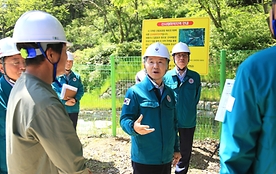Remarks by H.E. Cho Tae-yul
Minister of Foreign Affairs
The 1st “2024 KNDA Meets Ambassadors”
April 12, 2024
Ambassador Carlos Victor Boungou,
Dean of the Diplomatic Corps,
Chancellor Park Cheol-Hee of the Korea National Diplomatic Academy,
Excellencies,
Ladies and Gentlemen,
I am delighted to be here with you today.
It is a little over 3 months since I took office as Foreign Minister.
During that time, I have had the chance to meet with many of you on various occasions, not least during the Iftar dinner a couple of weeks ago.
But today is really the first time that I am having an engagement fully dedicated to members of the diplomatic corps.
I thank Chancellor Park for initiating this meaningful lecture series. There really is no overstating the importance of making sure that resident diplomats are well informed about our foreign policy priorities. You play a vital role in strengthening mutual understanding and the bonds of friendship between Korea and the countries you represent.
So it’s a privilege for me to kick off the first “2024 KNDA Meets Ambassadors” series and provide an overview of the Yoon Suk Yeol administration’s foreign policy priorities.
(Current International Landscape)
Let me start with a brief sketch of today’s geopolitical and geoeconomic landscapes.
It is often said that the world is at an inflection point in history.
Strategic competition between the big powers, the War in Ukraine and armed conflict in Gaza are buffeting the rules-based international order which has underpinned global peace and prosperity since the Second World War.
The divide between liberal and authoritarian worldviews is widening among nations, making it structurally difficult to pursue pragmatic interest-based foreign policies that are insulated from the values we espouse.
Security, economy and technology are increasingly intertwined, making it all but impossible to compartmentalize our diplomacy into security or economic spheres.
As the global economy is fragmenting along geopolitical fault lines, concepts like “reshoring,” “friendshoring,” “decoupling,” and “deglobalization” have become the new lexicon of our time.
As a matter of fact, a recent IMF report showed that just in the last year alone, over 2,500 industrial policy measures were implemented worldwide, underscoring the merger between economic statecraft and realpolitik.
Korea is heavily affected by all of these tectonic shifts. The American political scientist, John Mearsheimer, once said that Korea is situated in the worst geopolitical location and that no missteps are allowed. Although this observation was made a decade ago, it resonates even more powerfully today.
But at the same time, Korea is no longer a nation that is passively resigned to accepting its geopolitical fate.
The Yoon Suk Yeol administration’s foreign policy vision of becoming a “Global Pivotal State” is about actively harnessing Korea’s growing strengths and capabilities in the service of advancing freedom, peace and prosperity around the world in this polycrisis era.
(Global Diplomacy Enriched by Values)
The Global Pivotal State vision starts first and foremost with championing the rules-based international order.
Korea’s journey from a war-ravaged, impoverished, authoritarian state to an economically thriving, technologically advanced, and politically vibrant nation is well known.
This success was driven by the tireless energy of the Korean people, but it was also made possible by a conducive rules-based international order -- one that has been anchored in free markets and universal values such as human rights.
At a time when this rules-based international order is being challenged from both without and within, Korea recognizes that it now has the heft to make a difference.
For most of the post-war period, Korea’s weight in global affairs was too marginal for its choices to make a difference. But today, the choices that Korea makes do matter for the present and future of global order and freedom, peace, and prosperity around the world. This is the reason why Korea has recently been referred to as a potential candidate to join the G7 if and when it is expanded.
Let me cite a few recent examples of what Korea has been doing to help tackle challenges to the rules-based international order from without.
Last week, I attended the meeting of NATO Foreign Ministers with other Indo-Pacific partners -- Australia, New Zealand and Japan.
I conveyed Korea’s readiness to further build on its decades-long ties with NATO to confront shared challenges.
Korea’s participation in NATO meetings attests to our commitment to safeguarding the fundamental rules enshrined in the UN Charter and collectively addressing shared threats to our interconnected regions.
This applies most importantly to Ukraine. Korea stands in solidarity with Ukraine and the international community to end the war and restore peace.
At the NATO meeting, I announced Korea’s plan to contribute 12 million dollars to NATO’s Comprehensive Assistance Package, which provides medical and rehabilitation support for Ukraine’s military.
This is over and above the 140 million dollars in humanitarian assistance last year, which included demining equipment and emergency medical vehicles.
It is also over and above the additional 2.3 billion-dollar comprehensive aid package that President Yoon Suk Yeol unveiled during his visit to Kyiv last year to help Ukrainians rebuild their nation.
In February this year, Korea also joined the Ukraine Donors Coordination Platform (MDCP) to ensure that our collective assistance is effective and well-coordinated.
I also attended the United Nations Security Council meeting marking the second anniversary of the War in Ukraine and called Russia out for its unlawful aggression in Ukraine. I was the only Foreign Minister from Asia to attend the meeting.
Indeed, the UN Security Council is where Korea’s diplomatic efforts to safeguard freedom, peace and prosperity globally will be brought fully to bear.
As a non-permanent Security Council member, Korea plans to take the lead in shaping discussions on, among others, cybersecurity, climate change and security, peacekeeping and peacebuilding as well as women, peace and security.
It goes without saying that North Korea’s illicit nuclear and missile programs and its egregious human rights record will also be front and center.
We have recently had a glimpse of what is possible when non-permanent members pull their weight together.
Security Council resolution 2728 on the situation in Gaza represents one of those rare instances where the 10 elected members of the Security Council, including Korea, stepped up and tabled a text after four other previous attempts had failed.
(Korea’s Indo-Pacific Strategy)
The Indo-Pacific region is also one of the main focal areas of Korea’s diplomacy.
After all, the region is home to more than half of the world’s population and GDP, and just short of half of worldwide trade. It is also home to vital maritime routes.
Ensconced between the Indian Ocean and the Pacific Ocean is the South China Sea.
Because the South China Sea is a critical sea lane of communication,
peace, stability and safety there have a direct bearing on the interests of all nations that use those waterways.
No doubt, peace, stability and safety in the Indo-Pacific region are essential to peace and security on the Korean Peninsula.
This is the reason why, in 2022, the Korean government released its Indo-Pacific Strategy, Korea’s first comprehensive regional strategy, followed by a concrete Action Plan announced in December last year.
To move implementation into full gear, I’ve appointed a Special Representative for the Indo-Pacific earlier this year. We look forward to deepening strategic dialogues with Indo-Pacific nations on regional dynamics and policy approaches.
Korea’s Indo-Pacific strategy is firmly based on the robust Korea-US alliance and trilateral cooperation among Korea, Japan and the United States.
As is the case for many other countries in the region, ASEAN centrality is a key element of the strategy. Partnerships with likeminded countries such as Australia, Canada, New Zealand and India are also essential in pursuing the strategy.
From a somewhat different perspective, China is also a key partner for regional peace and prosperity, as clearly stated in the strategy.
Based on mutual respect and reciprocity, we will continue to seek a mature and sound relationship with China.
It is in this context that we are now working hard on the Korea-Japan-China trilateral summit meeting to be held here in Seoul in the near future for the first time in 4 years.
I also look forward to meeting my Chinese counterpart sooner rather than later.
(Partnership with the Global South)
We are also actively strengthening our diplomatic outreach to the Global South.
In early June, we will host the inaugural Korea-Africa Summit -- a landmark event which will highlight Korea’s commitment to deepening mutually enriching partnerships with African nations that span a wide range of sectors: trade and investment, energy infrastructure, food security, climate change, global supply chains, and fostering the digital transformation, among others.
ASEAN and India are important partners for strategic cooperation not only in the Indo-Pacific region, but also in the Global South.
Most recently, we established diplomatic relations with Cuba at long last, which consummates Korea’s ties with the whole of Latin America. We will make the best use of this hard-won momentum created by this diplomatic achievement to further expand our partnership with Latin America.
We will also make sure that our burgeoning ODA, which grew by more than 40 percent this year, is fit for purpose in meeting the defining challenges of our era.
An integrated approach to strengthen the peace-development-humanitarian nexus will be the focus of these efforts.
Indeed, there is no peace without development, and no development without peace. Equally true is that peace and development is not sustainable without respect for human rights.
Tackling climate change is also high on our agenda for development cooperation.
Building upon the momentum from the “Carbon-Free Energy (CFE) Initiative” which Korea introduced at the UN General Assembly last year, we will strive to launch the “Carbon-Free Energy (CFE) Global Task Force” within this year.
Furthermore, we aim to increase our green ODA to serve as a ‘green ladder’ for developing countries.
Korea’s development cooperation is aimed at sharing its unique development experiences and lessons learned, which, in turn, will help developing countries build capacity to stand on their own feet.
As a country that has transformed into an industrial democracy within a generation or so and as a nation that hails from the East but is likeminded in many ways with the West, Korea is also committed to building bridges between the Global North and South by performing three roles:
First, a facilitator that helps to find a common ground between developed and developing countries;
Second, a supporter for developing countries in their quest for peace and prosperity; and
Third, an initiator that helps to set new global norms and standards on emerging issues.
Korea’s vision to become a Global Pivotal State attests to its determination to facilitate, support and initiate.
We will be leveraging our strengths and diverse diplomatic networks to perform these roles.
Korea is also stepping up to help safeguard the rules-based order against challenges from within.
Along with the escalation of geopolitical tensions, the world is witnessing a retreat from democratic values from within societies.
This unfortunate phenomenon is partly being fueled by AI-driven social media and malicious cyber activities that amplify misinformation and disinformation and tear away at the fabric of social trust.
In this so-called ‘Year of Democracy,’ Korea hosted the Third Summit for Democracy last month.
The conference catalyzed multi-stakeholder partnerships at the global level to help steer technological change in a way that upholds democratic values.
As part of this effort, Korea is providing 100 million US dollars to promote democratic governance through transparency, anti-corruption and e-government in the Indo-Pacific.
(Denuclearization of North Korea)
Dear Ambassadors,
Peace and stability in the Indo-Pacific will be unsustainable as long as the threats posed by North Korea’s growing nuclear and missile capabilities and its bellicose rhetoric persist.
Since the start of this year, North Korea has been increasingly provocative, repeatedly violating multiple UNSC resolutions and has even abrogated its long-held policy of reunification, declaring South Korea as its No. 1 adversary.
We are fully prepared to respond to whatever provocative actions by North Korea resolutely and decisively in close coordination with our ally, the US, and other partners.
As many of you are already aware, our strategy is anchored in the “3D” -- deterrence, dissuasion, and diplomacy.
First, “deterrence.” Pursuant to the Washington Declaration announced during President Yoon’s state visit to the US last April, we are significantly enhancing extended deterrence against North Korea’s nuclear and missile threats.
Should North Korea contemplate a nuclear strike, it will be met with an immediate, overwhelming, and decisive response by the Korea-US Alliance.
We are also working closely with the US and Japan to further cement the institutionalized trilateral security cooperation in accordance with the landmark Camp David agreements released in August last year.
Korea’s rapprochement with Japan last year has been indispensable to advancing this security tripod and moving our partnership forward on a whole range of issues on the basis of our shared values.
Second, “dissuasion.” This includes curbing and severing North Korea’s access to illicit revenue streams generated from crypto-currency heists, ransomware attacks and its overseas IT workers.
Cutting off the flow of illicit funds to Pyongyang’s coffers will make it more difficult to finance its weapons production.
We are also making enhanced efforts to disrupt the provision of refined oil to North Korea beyond limits set by Security Council resolutions, including those involving illegal ship-to-ship transfers.
In this regard, Russia’s recent vetoing of the UN Security Council resolution to renew the mandate of the Panel of Experts, despite the overwhelming support of Security Council members, comes as a serious disappointment.
The job of the Panel is to monitor compliance with UN sanctions against North Korea to prevent precisely the kind of illicit activities I just mentioned.
Shutting down the Panel is therefore tantamount to destroying a closed-circuit TV to a being caught red-handed.
As you know, North Korea is providing Russia with munitions and ballistic missiles, the remnants of which were found in the battlefield of Ukraine.
This not only violates Security Council resolutions, but also endangers security in Europe.
Conversely, we are vigilantly monitoring the possibility of North Korea acquiring advanced military technology and excess oil shipments from Russia, as this would pose a serious threat to our own security and beyond.
This is a troubling reminder of how security in the Indo-Pacific is increasingly intertwined with security in Europe and vice versa.
Against this backdrop, last week’s NATO Foreign Ministers’ meeting saw near universal recognition of this growing connection and called for such military cooperation to stop.
Korea is committed to working closely with the international community to ensure strict enforcement of sanctions and to maintain the integrity of the UN sanctions regime against North Korea.
I ask for your support to make sure that your capitals are fully on board with this goal and thank the countries that have spoken forcefully on this issue at the UN General Assembly yesterday.
Third, “diplomacy.” There is no need to repeat that the Yoon Suk Yeol administration’s Audacious Initiative leaves the door open for dialogues and negotiations.
We are prepared to provide significant assistance to improve North Korea’s economy and its people’s livelihoods if Pyongyang ceases its nuclear weapons development and embarks on a genuine and substantive denuclearization process.
Just to add one more point on North Korea: its nuclear and missile programs as well as its egregious human rights situation are two sides of the same coin.
It is through the repression of the rights of its people and the diversion of scarce resources that Pyongyang is able to develop weapons of mass destruction with impunity at home.
Korea will redouble its efforts to improve the dire human rights situation in North Korea and enhance our support for North Korean defectors.
And in stark contrast to Kim Jong Un’s repudiation of Korea’s one nationhood, Korea remains ever more committed to realizing a free and unified Korean Peninsula, as President Yoon articulated in his Independence Movement Day speech on the 1st of March.
(Diplomacy for Economic Security)
Finally, I wish to say a few words about our diplomacy for economic security focused on decompartmentalizing economy and security.
In response to real challenges to our economic security, Korea is intensifying collaboration with key partner countries to shore up supply chain resilience.
We will proactively leverage international cooperation networks such as the Supply Chain Crisis Response Network under the Indo-Pacific Economic Framework (IPEF).
The Network will become operational for Korea by the middle of next week and will enhance our ability to navigate potential supply chain disruptions.
We are also working to bolster our cooperation in securing the supply of critical minerals, such as graphite, through the Minerals Security Partnership (MSP).
Furthermore, Korea is seeking to help shape new norms relating to emerging technologies in a manner consistent with our values.
These include advocating for a new digital order that upholds freedom, ensures fair and equitable access, and promotes a safe and trustworthy digital environment.
They also include making sure that the rules of the road relating to artificial intelligence safeguard and uphold human rights and international humanitarian law.
Key conferences that Korea will be hosting this year, such as the AI Seoul Summit with the UK and the High-Level Conference on Responsible Use of AI in the Military Domains (REAIM) with the Netherlands, will offer opportunities for us to contribute to shaping the future of digital and AI governance globally.
On a related note, one of the first things I did as Foreign Minister was to engage with entrepreneurs from SMEs and startups.
Last month, my outreach culminated in a tripartite MOU among the Foreign Ministry, the Ministry of SMEs and Startups, and the Korea Federation of SMEs.
The Foreign Ministry has also launched the “K-Startup Global Networking Support Project.”
We do this because we believe Korean startups have the potential to bring win-win benefits to both the Korean economy and host economies abroad.
At this year’s Las Vegas Consumer Electronics Show, an unprecedented 116 Korean venture companies and startups won CES Innovation Awards presented by the Consumer Technology Association of America.
Korean companies accounted for 43 percent of the awardees. Yet, despite their advanced technology and eagerness to expand internationally, they suffer from a lack of insights about overseas markets and limited local networking opportunities.
Your role as a bridge between these companies and markets in your home countries would redound greatly to deepening our economic relations and therefore be deeply appreciated.
(Closing Remarks)
Excellencies,
Much like your own countries, Korea faces immense challenges.
But working together with likeminded partners and the Global South, we could address these challenges more effectively.
This entails upholding the rules-based international order and pushing back against flagrant violations of those rules, part and parcel of which are the UN Charter and Security Council resolutions.
It also involves making sure that the emerging technological landscape is consistent with the values underlying those rules.
And as we do so, I look forward to building on our common ground and bolstering our concerted efforts in as many areas as possible.
So on that note, let me wrap up my remarks.
I have gone on rather too long and I appreciate your time and patience. I would be happy to respond to any questions you might have.
/END/
 이 누리집은 대한민국 공식 전자정부 누리집입니다.
이 누리집은 대한민국 공식 전자정부 누리집입니다.




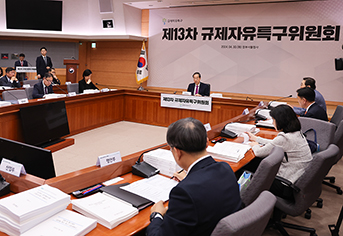

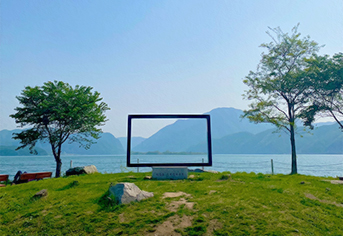
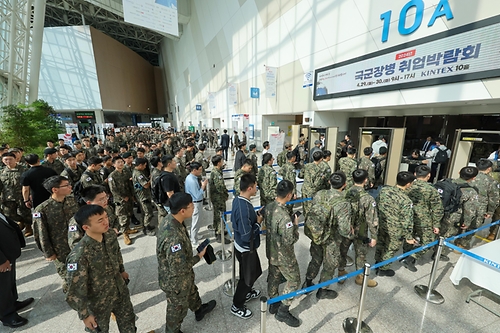
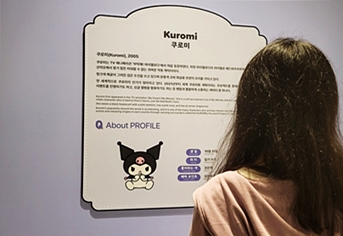
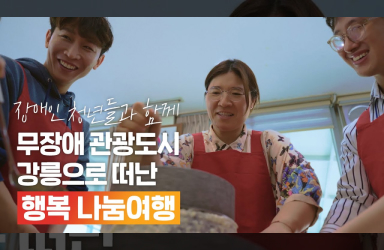
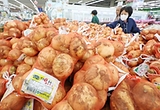
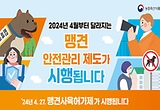
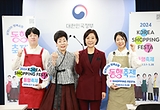
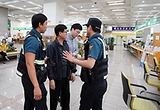
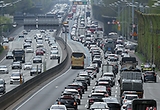
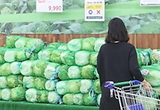
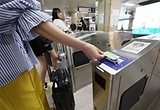
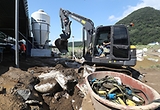
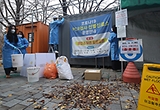
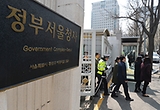


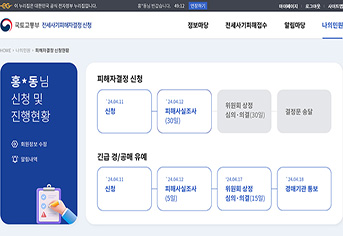
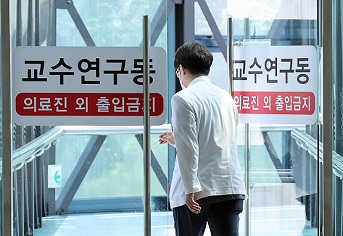
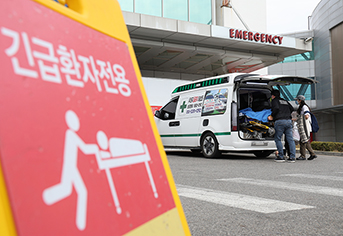
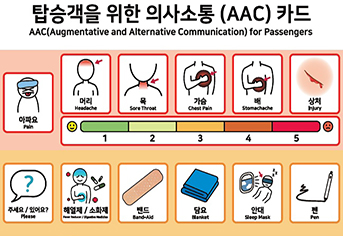
![[오늘의 맞춤정책] “스포츠활동 참여하고 연간 최대 5만원 ‘튼튼머니’ 받으세요”](https://www.korea.kr/newsWeb/resources/attaches/2024.04/24/e43ffba1555b1f57805aebab71314c73.jpg)
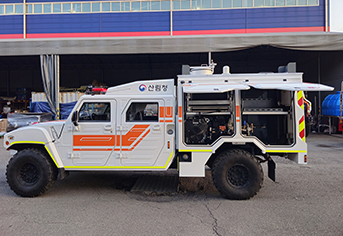
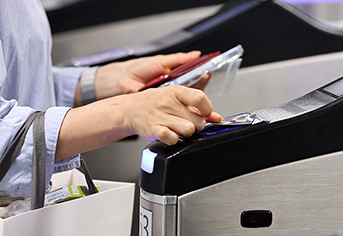
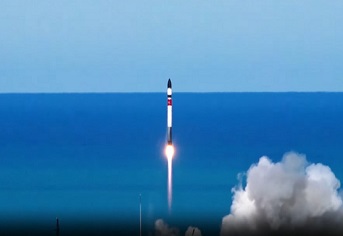
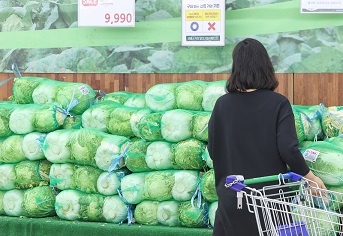
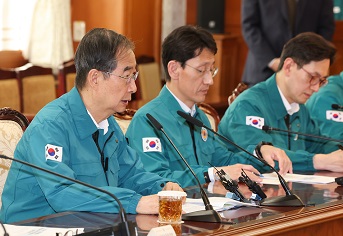
![[대담한정책] 꽁꽁 얼어붙은 불통을 함께학교가 깨뜨립니다](https://www.korea.kr/newsWeb/resources/attaches/2024.04/29/359a3caa9b2eb084974ab58786234282.jpg)
